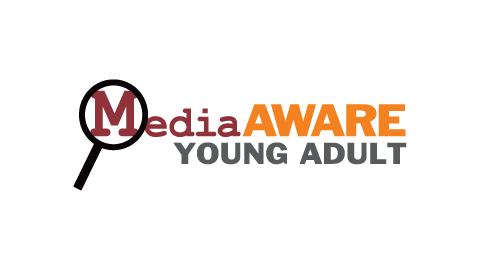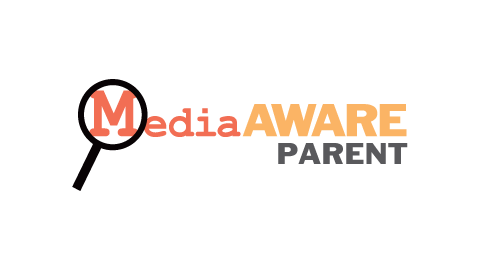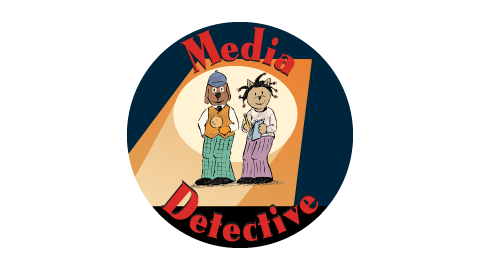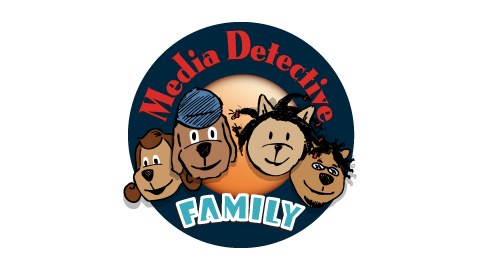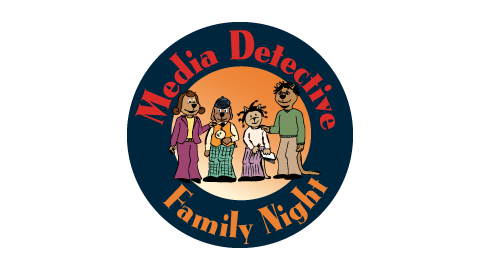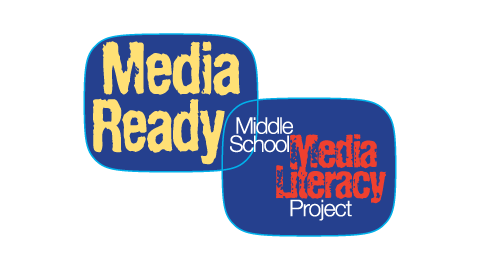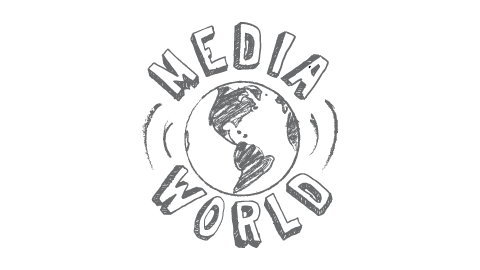FOCUS AREAS
We are immersed in a media world. iRT has unparalleled expertise in teaching children, teens, parents, and teachers’ skills to navigate through thousands of media messages to be able to make healthy, responsible, independent decisions.
Media have become ubiquitous in the lives of children, teens, and young adults. For example, almost all U.S. households have at least one television set (97%), 77% of Americans own a smartphone, and nearly 80% own a computer. According to a nationally representative survey, 13-18-year-olds’ average media use is approximately 9 hours per day. Almost all teens and young adults either own a smartphone or have access to one.
Along with such frequent media use, young people are also exposed to more advertising than in past generations, including advertising for alcohol and tobacco products. Not only is media use pervasive, it is also persuasive. For example, the more often that young people are exposed to pro-drug media messages, the more they use alcohol and tobacco. Children and adolescents are also exposed to other kinds of unhealthy media messages that has been found to have a negative influence on their behavior. For example, exposure to sexual content on TV, sexually degrading music, and a “sexual media diet” are related to subsequent sexual behavior; even after controlling for alternative explanations, and media exposure predicted sexual behavior 1-2 years later.
Adolescents often acknowledge media influence on friends but tend to deny that media influences them. Thus, the influence of unhealthy media content may be amplified, because adolescents are less likely to consider the impact of media messages on their own health.
The research on the impact of media on health decisions and health behaviors suggest that young people need skills in interpreting media, especially critical thinking tools that can help them understand and interpret their frequent and intense exposure to pro-drug and unhealthy sexual messages in advertising and other media.
iRT has contributed to research establishing a relationship between attitudes towards media and risky health behaviors. In addition, we utilize media literacy education (MLE) as a means of equipping students, teachers, and parents with the skills they need to be critical media consumers and producers. Both the American Academy of Pediatrics (AAP) and the American Psychological Association (APA) encourage the implementation of MLE programming in schools to reduce harmful effects of media on youth. iRT’s MLE programs are designed to address specific risk behaviors in childhood and adolescence (e.g., substance use, risky sexual behaviors) with the aim of impacting both media- and health-related outcomes.
Dr. Tracy Scull conducts research on the development and evaluation of media literacy education programs for substance misuse prevention and sexual health education with children, teens, parents, and teachers.
Dr. Christina (Malik) Dodson conducts research on the development and evaluation of media literacy education programs for substance misuse prevention and sexual health education with children, teens, parents, and teachers.
Dr. Janis Kupersmidt conducts research on the development and evaluation of media literacy education programs for substance misuse prevention and sexual health education with children, teens, and teachers.
Dr. Reina Evans-Paulson conducts research on the development and evaluation of media literacy education programs for substance misuse prevention and sexual health education with children, teens, and teachers.
Dr. Katie Stump conducts research on the development and evaluation of media literacy education programs for substance misuse prevention and sexual health education with children, teens, and teachers.
RELATED PROJECTS
RELATED PRODUCTS
RELATED PUBLICATIONS
NEWS
RELATED PRESENTATIONS
Scull, T. M. (2019, December). Media Aware: An innovative, engaging, and effective approach to sexual health promotion for young adults. Presentation at the 5th annual Let’s End Campus Sexual Assault; Eastern Michigan University.
Scull, T. M. (2019, August). Media Detective: A creative approach to substance use prevention in elementary school. Presentation for the NC 21st Century Community Learning Centers Summer Institute, Guilford Tech Community College in Jamestown, NC.
Scull, T. M. (2017, June). The birds, the bees, and Kim Kardashian: Navigating sex and media with adolescents. Presentation for the NC School Health Training Center, Greenville, NC.
Scull, T.M., Keefe, E., & Malik, C.V. (2017, May). The birds, the bees, and Kim Kardashian: Engaging and equipping parents to navigate sex and media with adolescents. Workshop presented at the SHIFT NC Annual Conference: Greensboro, NC.
Scull, T.M., Kupersmidt, J.B., & Keefe, E. (2016, October). A web-based media literacy education sexual health program for older adolescents. Poster presented at the Society for Research on Child Development Special Topics Meeting: Technology and Media in Children’s Development, Irvine, CA.
Scull, T.M., Malik, C.V., & Keefe, E. (2016, May). Meeting the needs of older adolescents: Relationship and sexual health promotion using media literacy education. Workshop presented at the SHIFT NC Annual Conference: Durham, NC.
Scull, T.M., Malik, C.V., & Kupersmidt, J.B. (2016, May). The unique influence of media-related cognitions on predictors of adolescent sexual behaviors. Poster presented at the Society for Prevention Research, San Francisco, CA.
Scull, T.M. & Kupersmidt, J.B., & Weatherholt, T. (2016, May). Reducing health disparities in rural communities through an interactive, web-based family media literacy education program for substance abuse prevention. Poster presented at the Society for Prevention Research, San Francisco, CA.
Elmore, K., Scull, T.M., & Kupersmidt, J.B. (2016, March). Media as ‘Super Peer’: How adolescents interpret media messages predicts their perception of alcohol and tobacco use norms. Poster presented at the Society for Research on Adolescents Biennial Meeting, Baltimore, MD.
Scull, T.M., Kupersmidt, J.B., & Malik, C.V. (2016, March). An evaluation of a comprehensive sexual health media literacy education program for middle school students. Paper presented at the Society for Research on Adolescents Biennial Meeting, Baltimore, MD.
Scull, T.M., Malik, C.V., Kupersmidt, J.B., & Moallem, M. (2016, March). Rethinking sexuality education: A web-based solution. Paper presented at the Society for Information Technology and Teacher Education, Savannah, GA.
Scull, T.M., Malik, C.M., & Vuong, K. (2015, May). What’s media got to do with it? Addressing sexual health misinformation with media literacy education for adolescents. Workshop presented at the Annual Conference of the Adolescent Pregnancy Prevention Coalition of North Carolina, Greensboro, NC.
Kupersmidt, J.B., Weatherholt, T., & Scull, T.M. (2014, September). Substance abuse prevention and media literacy education. Workshop presented at National Prevention Network Conference, Hartford, CT.
Kupersmidt, J.B. & Scull, T.M. (2014, April). An evaluation of Media Aware, a media literacy education substance abuse prevention program for high school students. Poster presented at The School District of Philadelphia’s Research, Policy, and Practice (R2P) Conference, Philadelphia, PA.
Scull, T.M., Malik, C.V., & Kupersmidt, J.B. (2014, March). A media literacy education approach to teaching adolescents comprehensive sexual health education. Presented to the Society for Research on Adolescents Biennial Meeting, Austin, TX.
Scull, T. M. (2014). Challenges and strategies for evaluating prevention programming in rural areas. Presentation at the 16th Annual NIH SBIR/STTR Conference, Albuquerque, NM.
Kupersmidt, J. B. & Scull, T. M. (2013). An evaluation of the effectiveness of media literacy education for substance abuse prevention in high school students. Poster presented at the Annual Conference of the Society for Prevention Research, San Francisco, CA.
Scull, T. M. (2013). Media Ready Teacher Training Workshop. Presented to members of the Substance Free Youth (SFY) Community Coalition, Vancouver, WA.
Scull, T. M. (2012). Substance Abuse Prevention and Media Literacy Education. Workshop presented to the North Carolina Collaborative for Children, Youth, and Families, Chapel Hill, NC.
Ortiz, R., Scull, T., Brown, J.D., Shafer, A., Kupersmidt, J., & Suellentrop, K. (May 2011). 16 and pregnant: The effects of watching and discussing a reality television drama about the consequences of teen pregnancy. Health Communication Division, International Communication Association Conference, Boston, MA.
Shafer, A., Ortiz, R.R., Scull, T.M., Kupersmidt, J.B., & Brown, J.D. (March 2011). At-risk adolescents’ media diets and outcome expectancies influence intentions to refrain from sex and to avoid pregnancy. Poster presented at the Society for Research on Child Development, Montreal, Canada.
Scull, T.M. & Kupersmidt, J.B. (2011). Children’s media-related and substance use cognitions in the context of parental and peer influences. Poster presented at the Conference of the Society for Prevention Research: Washington, DC.
Scull, T. M. (2010). Media literacy for substance abuse prevention. Two-day training workshop presented to the North Carolina Summer School for Alcohol and Drug Studies, Wilmington, NC.
Scull, T. M. (2010). Media Ready Teacher Training Workshop. Presented to the Love, Faith, and Hope Coalition, Texarkana, AR.
Scull, T. M. (2009). Media Detective: A new NIDA-funded media literacy substance abuse prevention program. Workshop presented at the Community Anti-Drug Coalition of America’s Mid-Year Training Institute: Louisville, KY.
Barrett, T. M. & Kupersmidt, J. B. (February, 2008). Media literacy, substance abuse prevention programs for middle school students. Workshop presented at the North Carolina Department of Public Instruction Safe, Orderly, & Caring Schools Conference, Greensboro, NC.
Barrett, T. M., Kupersmidt, J. B., Benson, J.W., & Elmore, K.C. (2008). Exploration of mediators and moderators of a media literacy, substance abuse prevention program for middle school students. Poster presented at the Society for Research on Adolescence Conference, Chicago, IL.
Kupersmidt, J. B. & Scull, T. M. (2008). Media Ready: A new evidence-based, middle school, media literacy, substance abuse prevention program. Paper presented at the 21st Annual National Prevention Network Prevention Research Conference, Indianapolis, IN.
Barrett, T. M., Kupersmidt, J.B., Elmore, K.C., & Benson, J.W. (2008). Further exploration of media influence on adolescents’ moral beliefs and intentions surrounding substance use. Poster presented at the Society for Research on Adolescence Conference, Chicago, IL.
Scull, T. M., & Kupersmidt, J. B. (2008). Media Detective: A new evidence-based, elementary school, media literacy, substance abuse prevention program. Paper presented at the 21st Annual National Prevention Network Prevention Research Conference, Indianapolis, IN.
Kupersmidt, J. B. & Barrett, T. M. (November, 2007). Media literacy substance abuse prevention programs for elementary and middle school-aged youth. Talk presented to the Prevention Team of the North Carolina Department of Mental Health Developmental Disabilities and Substance Abuse Services.
Barrett, T. M., Kupersmidt, J. B., Benson, J.W., & Elmore, K.C. (2007). Evaluation of the North Carolina middle school, media literacy, substance abuse prevention project. Poster presented at the first Research Summit of the Alliance for a Media Literate America, St. Louis, MO.
Kupersmidt, J. B., Barrett, T. M., Elmore, K.C., & Benson, J.W. (2007). Preliminary Findings from the evaluation of the Elementary Media Literacy, Substance Abuse Prevention Project. Paper presented at the first Research Summit of the Alliance for a Media Literate America, St. Louis, MO.
Wilson, J., Dawes, D., Markovits, L., Stern, R., Barrett, T. M., & Kupersmidt, J. B. (August 2006). Media literacy workshop: Media literacy and its role in preventing underage drinking. Presentation to the North Carolina Task Force, Raleigh, NC.


